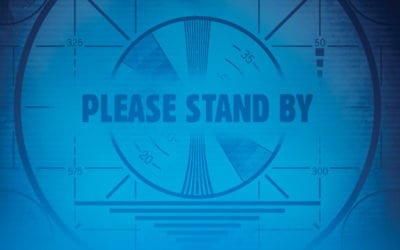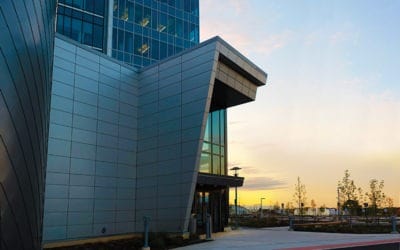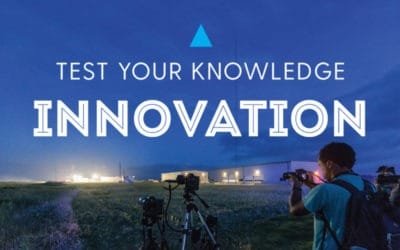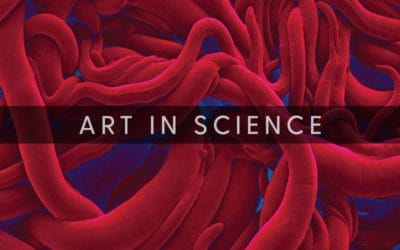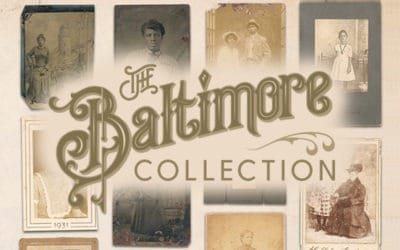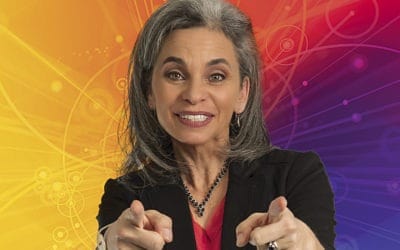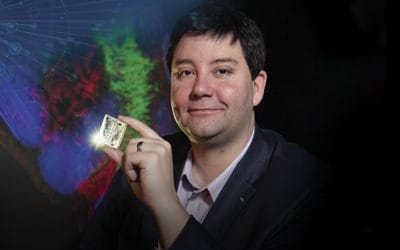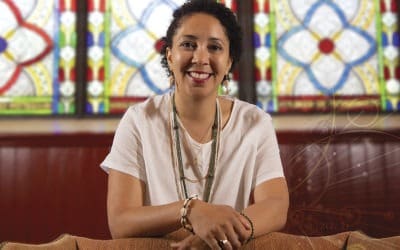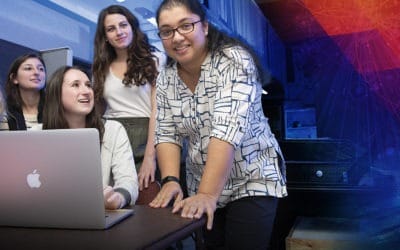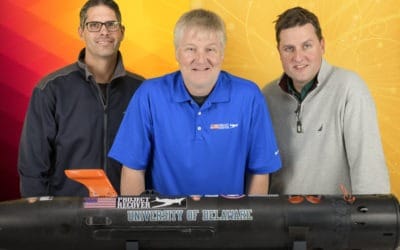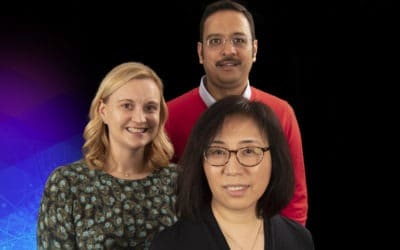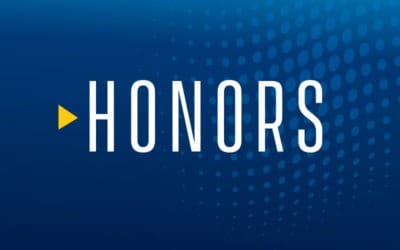
DISRUPTORS
DEFENDING EQUAL ACCESS TO FOOD
As head of the U.S. Food Administration, Herbert Hoover created the “Clean Plate” campaign during World War I to encourage Americans to conserve resources by using less, reducing waste and “cleaning their plate at every meal.” President Harry Truman helped revive this practice in elementary schools in the wake of the Great Depression and World War II.
Today, Allison Karpyn studies a different kind of clean plate challenge facing Americans—food insecurity—an individual or family’s limited or uncertain access to adequate nutritious food. This can mean not enough food, or it can refer to a reduction in the quality, variety or desirability of the food available. It’s a public health issue that contributes to hunger and also to health conditions such as obesity and diabetes.
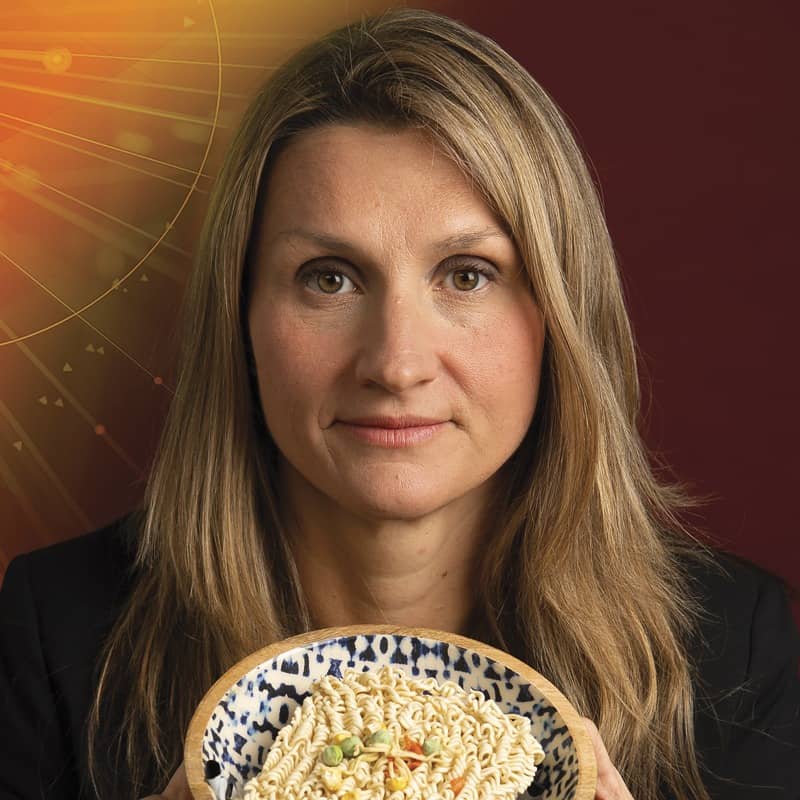
Allison Karpyn
Associate Professor
Senior Associate Director,
Center for Research in Education and Social Policy
MEET ALLISON
How does a new supermarket impact people who live nearby? Can healthy options be found in the little store down the street? These are questions that Allison Karpyn ponders regularly. Committed to informing policy and practice, Karpyn focuses on communities and what their residents, especially children, eat. Her current research centers on corner store programs in urban areas and whether in-store marketing in supermarkets can influence the purchase of healthier food options.
Karpyn is senior associate director of UD’s Center for Research in Education and Social Policy (CRESP) and an associate professor of human development and family sciences at UD. Prior to joining UD, Karpyn spent 12 years with The Food Trust in Philadelphia.

Question:
What do you study, and what led you into this field?
Answer:
I study the root causes of food insecurity, which influence hunger and obesity. I was led into the field as an undergraduate at Johns Hopkins University where I had the opportunity to participate in social science research at an early stage in my career. I worked in Baltimore city schools doing research and saw firsthand how needed it was and what a difference it could make. I really never changed course after that.
Question:
Did you color outside the lines as a kid?
Answer:
I don’t remember anything special about my coloring techniques, but this question makes me think of what a ‘disruptor’ really means. For some, ‘disruptor’ could speak to a person who is upsetting or rebellious. For me it is more about being driven to search for important answers where, or when, others are not willing and listening to your intuition when it’s telling you to go down a path. Also, I think disruption is about speaking up for the ‘little guy’–and I definitely did that a lot as a kid.
Question:
Can you recount the tipping point—the idea that produced your ‘aha!’ moment?
Answer:
I came to academia after having worked for 12 years at a pioneering Philadelphia-based nonprofit organization called The Food Trust. My first ‘aha!’ moment came in 2003 during hearings of the School Reform Commission (Philadelphia’s School Board) where debates were raging about whether to implement a school beverage policy that would restrict soda and other sugar-sweetened beverages. I realized then how persuasive research can be and how critical it is to inform policy. Through that process, I also saw that it is possible to achieve policies that put children’s best interests at heart, even if you don’t have much money for lobbying.
Question:
Were there many naysayers and how did you navigate that?
Answer:
I generally surround myself with hard-working, dedicated professionals who understand the realities of today’s families. I also stay with an issue even if it means getting some flak. And debates are good! Naysayers can create conversations around important policy issues like how to strike a balance between industry needs and public health, which are central in an economically driven democracy. These conversations open the door to more innovative research ideas, too.
Question:
What has been most satisfying about your work? Most terrifying?
Answer:
My best days are in the community, listening. In Kalamazoo, Michigan, recently I heard stories and saw pictures from customers and employees about the difference a new supermarket has made in a lower-income neighborhood. It is hard to know good people who are trying to raise a family on $15 dollars an hour, already higher than minimum wage, and still not making it. One woman I talked to works 120 hours per week and relies on food stamps so she and her kids can get by. She could really tell you how to buy on a budget! That’s the most terrifying part: thinking about what happens to the part of America that is earning an hourly wage and not making it.
Question:
What is your favorite problem at the moment?
Answer:
Like any good researcher, I am interested in a few problems. I have a new book out with ramen on the cover (Food and Public Health). The high consumption of ramen plagues me. It’s one of those very low-cost, tasty foods that feels home-cooked but is laden with salt and fat and lacks nutrition. But it is affordable at only 39 cents a package.
I am also interested in how we can better translate research to the community–our teachers, health care professionals, community leaders and policymakers. UD is leading several translational grants, including the ACCEL Program and the Center for Research Use in Education, to understand how to measure and actually make a difference through listening to needs and sharing data. This work is aligned with UD’s civic engagement work, which is growing. Understanding how to measure and capture a university’s efforts in the community is a wonderful problem.
Question:
Why do you want to keep doing this work?
Answer:
I remember when my daughter, in second grade, looked at an image of a man in a lab coat with a test tube in his hand and said, “Look at the scientist, mom.” When I offered that I, too, was a scientist, she broke out laughing and said, “No, you are not!” I realized then that we still don’t talk enough about the value of social science to our world. That, and the potential to help children get an equal chance at achieving the American dream, keeps me going.
MORE STORIES
From the Vice President for Research, Scholarship and Innovation
A disruptor prevents things from proceeding as usual. But that’s not always bad. In research and education, we’re always turning ideas and methods on their ear in the quest to learn something new…
Innovation In Motion
UD researchers partner with Reebok to build a “smart” sports bra — a sports bra engineered to actually do its job!
Disruptors
This issue of the University of Delaware Research magazine puts new faces on this idea of disruption, highlighting the innovative way our researchers are tackling complex problems. Learn about their work and what drives them and how the disruption they cause can produce real benefit for our world.
Bright Star
UD’s Science, Technology and Advanced Research (STAR) Campus is shining ever brighter with the nationally recognized Tower at STAR.
Test Your Knowledge: Innovation
As a growing research institution, the University of Delaware is a place where you’ll find new ideas constantly sparking solutions to challenges once deemed impossible.The wonder of innovation is all around us, but what do you really know about it? Try your hand at these questions.
Art In Science
Now in its fourth year, this annual exhibit offers a captivating glimpse into a vast world of discovery at the University of Delaware.
The Baltimore Collection
Something truly special emerged from a box that no one expected until Julie McGee, associate professor of Africana Studies and Art History, and her University of Delaware students got their hands on the 53 photographs inside.
Disruptors: Probing the Power of Paradox
A professor of management at UD’s Lerner College of Business and Economics, Wendy Smith focuses on how leaders and teams can effectively respond to contradictory agendas.
Disruptors: Cracking a Cell’s Secret Code
Jason Gleghorn has held a variety of jobs since college—teacher, firefighter, medic, engineer. Today, he’s an interpreter of sorts, too, deciphering the language that cells use to communicate in hopes of advancing new treatments for congenital birth defects, pediatric diseases and more.
Disruptors: Making Our Way
Professor of Africana studies at UD and an ordained elder in the African Methodist Episcopal Church, Monica A. Coleman focuses on the role of faith in addressing critical social and philosophical issues.
Disruptors: Moving Forward with Autism
With skills in physical therapy, behavioral neuroscience and biomechanics, Anjana Bhat brings expansive expertise to her work developing creative therapies for those living with autism spectrum disorders.
Disruptors: Expanding Our World View
These co-founders of the Robotic Discovery Laboratories in UD’s College of Earth, Ocean and Environment manage a growing robotics fleet for use on land, in air and under the sea. They explore questions along the coast, at the poles and in deep regions of the ocean.
Disruptors: Harnessing Beneficial Microbes
So, what do a virologist, botanist and soil physicist have in common? This team from UD’s College of Agriculture and Natural Resources is leveraging their collective expertise to ensure that our food supply is safe and abundant, now and in the future.
Honors
UD researchers have been recognized recently by the National Institutes of Health, American Political Science Association, TED Fellows program, National Science Foundation, National Academy of Inventors and the Gates Cambridge Scholarship program.
News Briefs
Check out some recent developments, from the launching of major research programs to address environmental and health issues in the First State, to the preservation of a pair of 1909 mittens with a hallowed history.
CONTACT
Tracey Bryant
Senior Director, Research Communications
Email: tbryant@UDel.Edu
SUBSCRIBE & CONNECT
The University of Delaware Research magazine showcases the discoveries, inventions and excellence of UD’s faculty, staff and students. Sign up for a free subscription.



